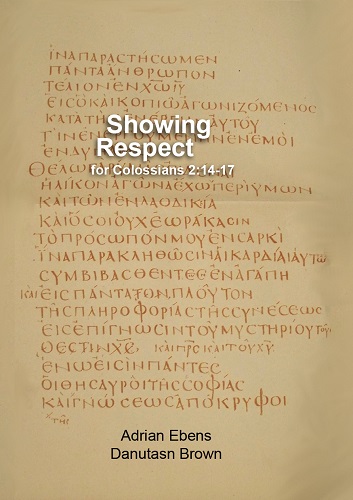Evidence suggests William Miller abandoned the Trinity
I was always of the belief that William Miller was a Trinitarian. The following statement gives clear proof that he was certainly that at one point.
William Miller statement 1 Sep 5, 1822.
"ART. II. I believe in one living and true God, and that [78] there are three persons in the Godhead, - as there is in man, the body, soul and spirit. And if any one will tell me how these exist, I will tell him how the three persons of the Triune God are connected."
"ART. III. I believe that God, by his Son, created man in the image of the Triune God, with a body, soul and spirit; and that he was created a moral agent, capable of living, of obeying, or transgressing the laws of his Maker." Sylvester Bliss, Memoirs of William Miller, (1853) pages 77,78 – Written at Low Hampton, Sept. 5, 1822
This statement is certainly Trinitarian.
But this is not the end of the story. Just today I stumbled across this statement that was published in 1842, 20 years after the first statement.
William Miller statement 2, 1842.
I believe in God, the Father of our Lord Jesus Christ, who is a Spirit, omnipresent, omniscient, having all power, creator, preserver, and self-existent. As being holy, just and beneficent, I believe in Jesus Christ, the Son of God, having a body in fashion and form like man, divine in his nature, human in his person, godlike in his character and power. He is a Savior for sinners, a priest to God, a mediator between God and man, and King in Zion. He will be all to his people, God with us forever. The spirit of the Most High is in him, the power of the Most High is given him, the people of the Most High are purchased by him, the glory of the Most High shall be with him, and the kingdom of the Most High is his on earth. William Miller’s Works Vol 1 (1842) page 33
The above is not a Trinitarian confession. God is presented as the Father of the Lord Jesus Christ. Jesus is presented as Godlike in character and power. Notice also that the Spirit of the Most High dwells in Him and this is the only reference to the Holy Spirit in this confession. There is also an emphasis of Christ as mediator between God and man. I have never seen this statement quoted by historians when speaking of Miller.
This volume was published by Joshua V Himes in 1842. Himes was a Christian Connection man and certainly did not believe in the Trinity. With reference to the Christian Connection Himes says the following:
“At first, they [Christian Connexion Adventists] were generally Trinitarians; subsequently they have, almost unanimously, rejected the Trinitarian doctrine as unscriptural." Their accepted statements regarding the Godhead were, "That there is one living and true God, the Father Almighty, who is unoriginated, independent, and eternal, the Creator and Supporter of all worlds; and that this God is one spiritual intelligence, one infinite mind, ever the same, never varying. . . That Christ is the Son of God, the promised Messiah and Saviour of the world. . . ." (Joshua V. Himes, "Christian Connection", Encyclopedia of Religious Knowledge, edited by T. Newton Brown, Boston: Shattuck & Co., 1835, p. 362).
So here Himes indicates that most Christian Connexion believers were Trinitarian in the beginning of the Advent movement but by 1835 they almost unanimously rejected the doctrine. The teachings of the Connection obvious came to the attention of William Miller who reveals his position in 1842 as distinctly non-trinitarian. Miller's first statement was published by Sylvester Bliss in 1853. Bliss, a congreationalist, appears to either have been unaware of the latter statement or he omitted it for some reason. Himes provides further evidence that he and Miller shared the same view of the Godhead through the following:
As it respects the general views of Mr. Miller, we consider them in the main to be in accordance with the word of God. We do not, however, adopt the peculiarities of any man. We call no man master. Yet we frankly avow that there is much in his theory that we approve and embrace as gospel truth. For example: His views of the literal interpretation of the prophecies - The character and divinity of Christ, and his personal reign on the earth - The restoration of Israel according to the faith of Abraham, with the rejection of the "judaizing notion" of the return of the carnal Jew to Palestine - The true millennium of the saints in the resurrection state; and the utter rejection of the modern notion of a temporal millennium - The first and second resurrections and judgments - The final destiny of the righteous and the wicked: on all these points we fully agree with him. Miller's Works Volume 1 pages iii,iv 1842
Himes states that He agrees with Miller on the character and Divinity of Christ and in light of Miller's statement in 1842 their agreement again suggests they both agreed against the Trinity.
Miller is the cornerstone of the Advent movement and his views on the Godhead are highly significant for the student of Adventist History.





